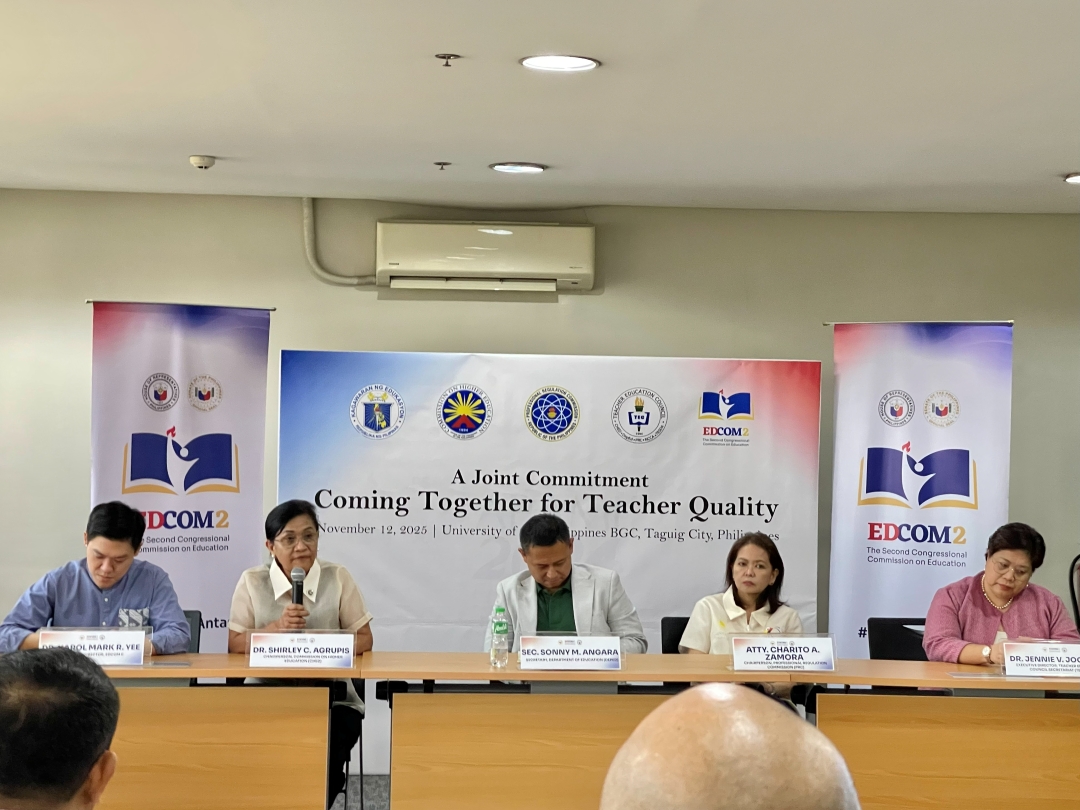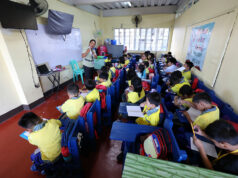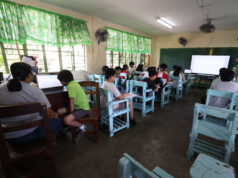
The Second Congressional Commission on Education (EDCOM II) on Wednesday said that the proliferation of low-quality post-graduate teacher education from “diploma mills” is impacting students’ learning nationwide.
This comes after a recent study by the commission and the Ateneo de Manila University found that more than half of the country’s graduate programs focus on the education field.
“There are graduates (from institutions) that are not yet CHED-recognized, then 100 students were suddenly given masters, the system really needs to be fixed,” EDCOM II Executive Director Karol Mark R. Yee told reporters at the sidelines of a press briefing.
“There’s actually a lot in BARMM,” he added in Filipino.
Among the 1,470 teacher education institutions in the country, over 400 offer doctoral and master’s degrees. Mr. Yee said that some of the schools allegedly engage in fraudulent activities and provide poor-quality education in exchange for diplomas.
“PhDs are finished in six months to one year, which should be three to five years,” he said. “It’s hard because if our graduate programs don’t have quality, teachers are paying, students are paying but it’s just a paper, there’s no real learning.”
“The quality of their teaching is also affected. The learning of the students is also affected,” he added.
Mr. Yee noted that the demand for higher studies stems from the Department of Education’s (DepEd) vertical qualification requirements and point-based promotion systems.
“The teachers were saying that no matter where we get our master’s or PhD (Doctor of Philosophy), as long as we have a degree, as long as we have a diploma, we can still be promoted,” he said.
“There are schools that, even if they don’t attend (classes), they will graduate. Schools are offering tours, parties, and food in exchange for degrees,” he added.
Diploma mills also lead to a mismatch between teachers’ specialization and their subject assignments.
“We have science teachers, English teachers, but their master’s is education leadership even though they are not a principal,” Mr. Yee said. “We can see that we have a mismatch in content knowledge.”
The Joint Memorandum Circular (JMC), signed by the DepEd, Commission on Higher Education (CHED), the Professional Regulation Commission (PRC), and the Teacher Education Council (TEC), aims to curb the diploma mills crisis through an Online National Registry (ONR).
The circular stated that legitimate undergraduate and post-graduate programs nationwide are listed under the Philippine Teacher Education Registry (PhilTER). Only the programs listed under the registry will be considered legitimate for professional and licensure examinations.
The platform will also display the licensure examination results of institutions and quality indicators, such as Centers of Excellence and Levels of Accreditation, to ensure unified, high-quality teacher education.
The quality assurance assessment of teacher education institutions nationwide will commence from December 2025 to March 2028. Higher education institutions that do not meet the minimum standards will be placed on a probationary period within a year to address deficiencies. Failure to comply could lead to being phased out and closure.
“That’s why we facilitated that the agencies talk to each other so that moving forward, the database will be unified,” Mr. Yee said. “So that everyone knows and so that no one can be fooled or misguided.” — Almira Louise S. Martinez



